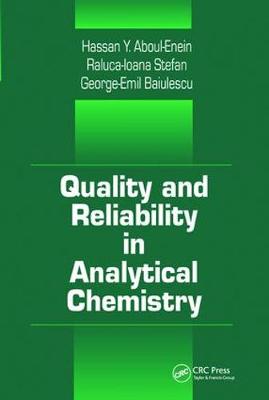Analytical Chemistry
1 total work
Quality and reliability are central to success in every discipline, but perhaps nowhere are they more important or more interconnected than in the practice of analytical chemistry. Here, although reliable analytical information implies quality, not all "quality" information proves reliable.
Quality and Reliability in Analytical Chemistry examines the various factors affecting these parameters in each step of the analytical process:
The Sample: Investigate the reliability of the sample, including its history and homogeneity.
The Method: See the connection between reliability and the selection of analytical methods for environmental, food, and clinical analyses.
The Instruments: Examine the relationship between reliability and your instrumentation.
Data Processing: Consider the importance of chemometrics in the reliability of data processing.
Automation: Explore automation of the analytic process through discussion of its parameters - rapidity, reproducibility, flexibility, and reliability.
Standards and Standardization: Understand how quality and reliability cannot be assured without using standards for measurement and how only reliable methods can be standardized.
The goal of the analytic process is to obtain high quality information with high reliability. Quality and Reliability in Analytical Chemistry helps you meet that goal and thereby satisfy your quality assurance and quality control requirements.
